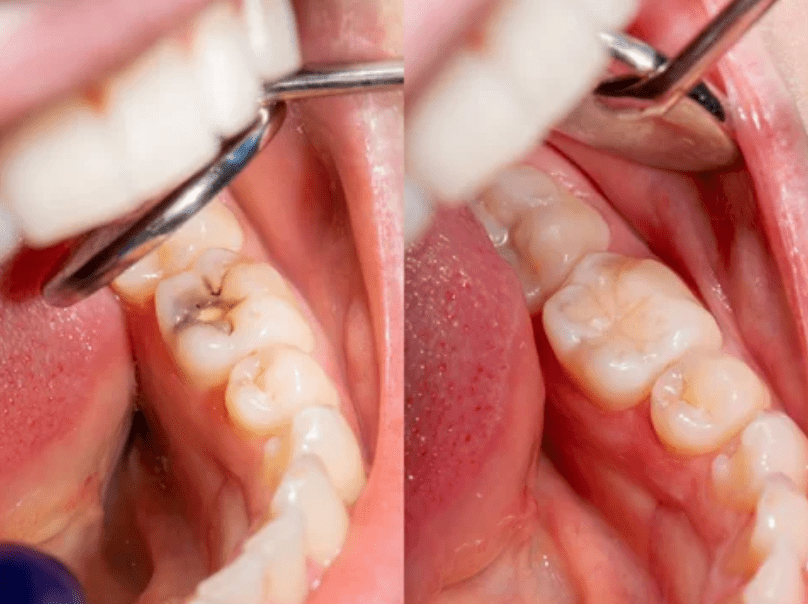Cavities are one of the most common dental issues that dentists care for on a daily basis. In fact, about 90% of adults over the age of 20 have had at least one cavity, according to the Centers for Disease Control and Prevention (CDC). Cavities are permanently damaged areas of the enamel. They start as small pits in the enamel but can grow in size and depth. Without treatment, they can burrow deeper into your tooth to the nerves and blood vessels, causing infection and more.
When you get a cavity, your dentist must drill out the decayed portion of your tooth. Then, they will thoroughly clean the tooth to ensure all the bacteria is gone. Finally, they will fill the cavity with composite resin, otherwise known as a dental filling.
While it is relatively easy to treat cavities, it is best to prevent them in the first place.

Oral Hygiene Routine
One of the most efficient ways to prevent cavities is to have a solid oral hygiene routine. At the bare minimum, dentists recommend brushing your teeth at least twice a day to remove plaque from your teeth. Additionally, you must floss your teeth daily to rid your teeth of plaque buildup underneath your gum line and between your teeth.
Plaque is a type of harmful bacteria that clings to the surfaces of your teeth and gums. Your oral health routine and diet can either minimize or enhance its production. However, without proper removal, plaque will continue to build. If plaque stays on your teeth long enough, it will harden into tartar. Tartar is a calcified form of plaque that only a dental professional can remove. Because tartar clings to your teeth, a toothbrush and floss cannot adequately eliminate it. Therefore, you should remove the plaque as best as you can before it turns into tartar.
Ways that you can improve your oral health include rinsing your mouth after eating, watching your diet, and using mouthwash. Many types of mouthwash include fluoride, which can help restore enamel and minimize cavity development. Also, rinsing your mouth after eating will remove any leftover food particles. This will reduce the number of nutrients that bacteria can consume. Finally, your diet can play an essential role in your oral hygiene.
Diet
The food you consume matters when it comes to your oral health. Some foods can increase your chances of developing tooth decay. For example, sugar is highly reactive with plaque-causing bacteria in your mouth. The bacteria consume the sugar, and then, the bacteria form an acid. This acid will chemically erode your enamel. Unfortunately, you can not reverse the process once erosion damages the enamel.
Enamel is the protective coating on your teeth. It keeps bacteria from entering your teeth and destroying the delicate nerves or blood vessels. While it is the strongest tissue in your body, the enamel is not invincible. It can be damaged both chemically and physically. One way that you can reduce the erosion of your enamel is to reduce the amount of sugar that you consume.
